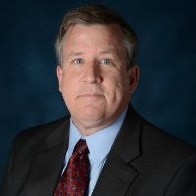 This was an interesting week for me at Northern Arizona University. Two things happened that reminded me our successes are not the result of our individual work and effort. Our successes are the result of others who have reached out and helped us climb the career ladder.
This was an interesting week for me at Northern Arizona University. Two things happened that reminded me our successes are not the result of our individual work and effort. Our successes are the result of others who have reached out and helped us climb the career ladder.
The first thing that happened was a student, who is graduating in May, stopped by my office and asked, “What did you do to become a CEO, because that is what I want to do.” The second is that I was fortunate to have Gary Maggetti speak to my classes. Gary graduated from NAU more than 20 years ago. Today, he is the general manager of Disney’s California Adventure Theme Park.
Every student wanted to know how he did it. What books did he read? What GPA do they need? How should they dress? How many hours a week should they work? Gary’s responses were very similar to mine. We had amazing managers and mentors who helped us from the first day we started to work.
For this month’s column, I’d like readers to take away two things: the importance of realizing it isn’t about you, or some genetic gift; and, the importance of thanking those who helped you get to where you are today.
- It’s not about you, your IQ or your genes.
I don’t care if you are Elon Musk, Bill Gates, Warren Buffett or Gary Maggetti, you got to where you are today because of others in your life. It may have been a parent, your manager at McDonalds (Gary Maggetti credits his McDonalds manager here in Flagstaff for much of the foundation on which he used to build his career), or any number of managers and leaders you encounter during your career.
During my three years of writing this column, you have read about the people who helped me, like Marsha Morgan, Ross Cooley, Jeff McKeever, Will Keiper and Craig Van Slyke. The real list is 10 times as long. Regardless, I never lost sight of the fact that my success (whether it was at my first job or my current position) was due to someone taking a risk, giving me a chance, putting his or her neck on the line for me or challenging me to move outside of my comfort zone.
- Ask questions, be inquisitive and seek an uncomfortable stomach.
I once worked with someone who suddenly surprised all of us and resigned. When I asked him why, he stated that his stomach stopped hurting. He went on to tell me that whenever we are challenged or forced outside of our comfort zone, we get butterflies in our stomach (or in really challenging times, a full on upset stomach). He told me his stomach hadn’t hurt in the prior year and he realized it was time to move on to another challenge.
I would encourage you to get uncomfortable and seek out a mentor or ask your manager for new opportunities that take you out of your comfort zone. It is rare for a mentor to seek out a mentee, so you need to take responsibility for that.
Always try to find more things to do, and look for opportunities outside of your area of strength or responsibility. I find that the people who succeed are always asking questions, are always challenging the status quo, but also taking the time to learn and listen from the employees who have been at the organization a long time.
One last point on this: Make sure you spend 80 percent of the time listening and 20 percent of the time talking or asking questions. We all talk way too much.
- Remember to thank those who saved you while you thought you were drowning.
I’m fortunate to have had an amazing career, and today I get to work with and help organizations all over the country. Unfortunately, what I see is that sometimes organizations, like individuals, believe they succeeded because of their own internal skills, strengths and people. They lost sight of the fact that others helped them at the time when they thought all was lost.
I once had a start-up CEO reach out to me and ask for my help. I met with this CEO three or four times a week for several months. At every meeting, he would say he felt bad he couldn’t pay me but that he had set aside “founder’s stock” for me in the event things turned around. Two years later, his company was acquired for a hefty sum. I never heard from him.
Fortunately, the majority of the organizations I help aren’t that way. They stay in touch and if they have a liquidity event, they honor their obligation or promise. In an organization, it takes lots of help from lots of people. Take the time to thank them. FBN
By T Paul Thomas
T Paul Thomas teaches business and non-profit entrepreneurship at Northern Arizona University, serves as the CEO of the Northern Arizona Leadership Alliance (NALA) and is the chief entrepreneur at the NACET Accelerator. Prior to joining NAU in 2013, Paul spent 25 years as a serial CEO and president. Paul can be reached at thomas.tpaul@gmail.com.







